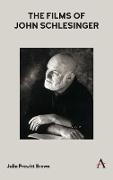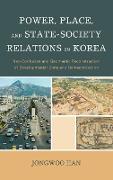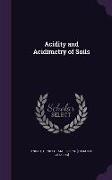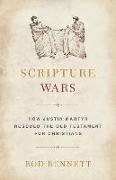The Films of John Schlesinger
BücherAngebote / Angebote:
The great historical and economic transformations of the late twentieth-century city are vividly reflected in John Schlesinger's oeuvre. In films of the early sixties 'A Kind of Loving' and 'Billy Liar', the city was imagined as industrial and residential, with the characters confronting life on the local and familial level. In 'Darling', 'Midnight Cowboy' and 'Sunday Bloody Sunday', films made from 1965 to 1971, the city had become cosmopolitan, ruled over by international finance and riven by class tensions. And in two films of the eighties 'The Falcon and the Snowman' and 'Madame Sousatzka', Schlesinger was emphatic in showing the desperation with which youthful characters struggled to come of age, not in a local urban environment, but in a national and global one. The specific economic and political forces driving these urban changes have been extensively treated in the growing body of scholarship on the 'cinematic city'. While these forces form an important backdrop to 'The Films of John Schlesinger', the aim of the book overall is to demonstrate the centrality of Schlesinger's aesthetic imagination, but not as something divorced from political, moral and historical life.The distinguished British cinematographer Billy Williams once described Schlesinger as the 'most complete' director he ever worked with. Schlesinger combined a directorial 'eye' (mastery of camera movement, framing, editing, production design, etc.) with a profound literary sense (understanding of character and situation). He began his career with the award-winning documentary 'Terminus' (1961) and went on to make a total of seventeen feature films and five films for television. Several of his films had a genuinely innovative impact: Andy Warhol said that 'Midnight Cowboy' 'took a real drawing card from the underground' in the way it dealt with 'forbidden subjects'. Pauline Kael described 'Sunday Bloody Sunday' as 'a novel written on film' and, in being so, an entirely new achievement, 'instantly recognizable as a classic'. Other Schlesinger films are also of lasting interest: 'Billy Liar', reissued by Criterion in 2001, is a comic gem. 'The Day of the Locust' is taught in film schools today. Yet there is a dearth of intelligent conversation about these rich works. Contemporary reviews by leading film critics are insightful, as are selected articles and the sole full-length study of Schlesinger, which appeared years before his career ended. A full-scale 'interpretation' of what Schlesinger's oeuvre teaches us about modern life has yet to appear.Schlesinger's films have been undervalued for reasons that have little to do with their achievement: he fell out of favour in Hollywood, offended critics with his satire of American society and made a few relatively uninspired films just to keep working. The time is ripe for a revaluation of his oeuvre. 'The Films of John Schlesinger' engages the innovative content and form of the major films, and makes critical judgements identifying their strengths and weaknesses. It explores their major theme, which is the importance of survival, and of trying to make the best of what one has, particularly as this theme is played out in modern, urban society. It takes up different theories of film - that of Benjamin, Hansen and others - but it is not a theoretical analysis intended solely for academics.
Folgt in ca. 15 Arbeitstagen




